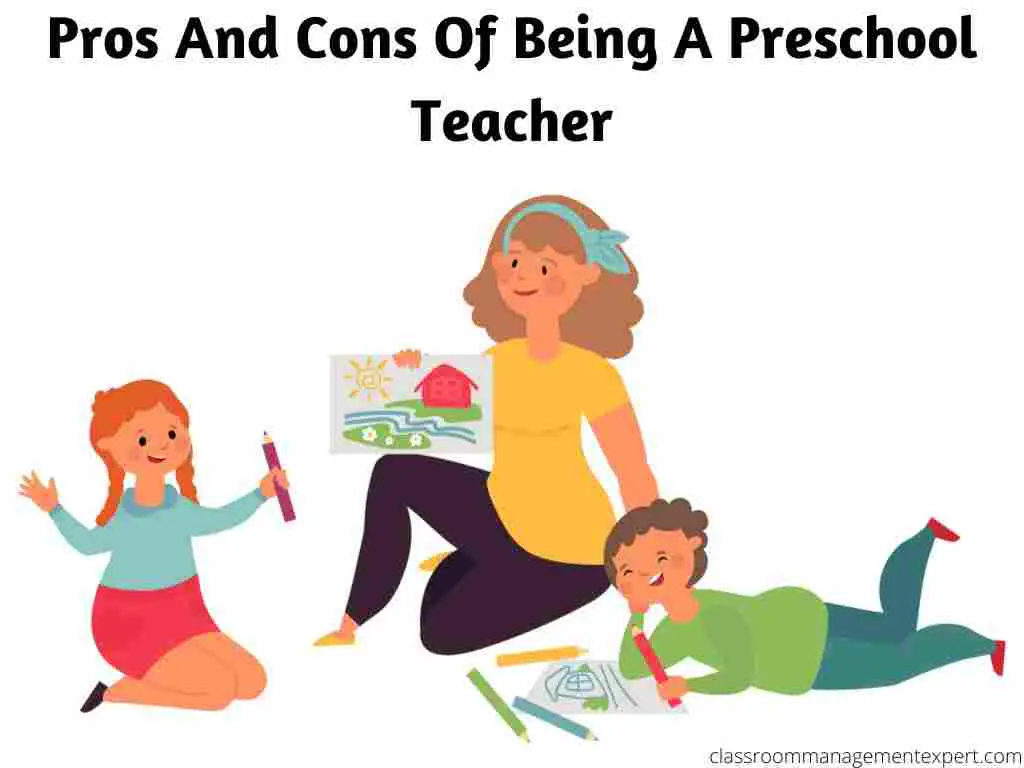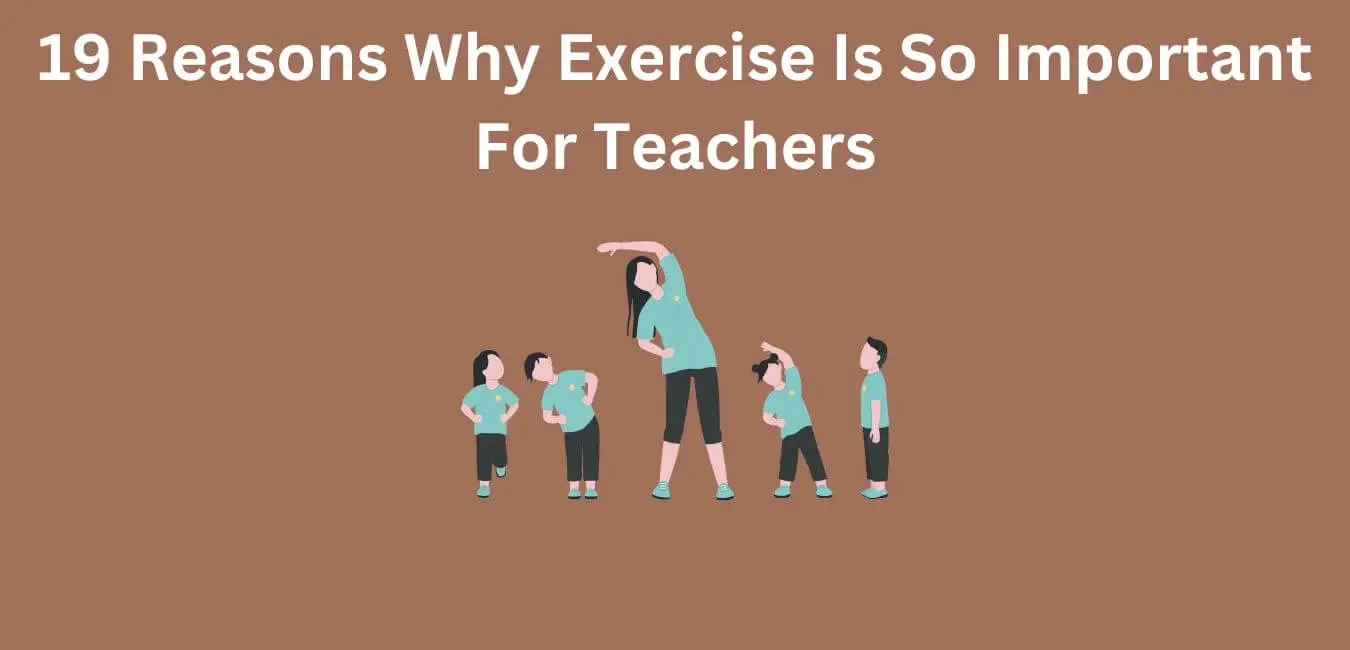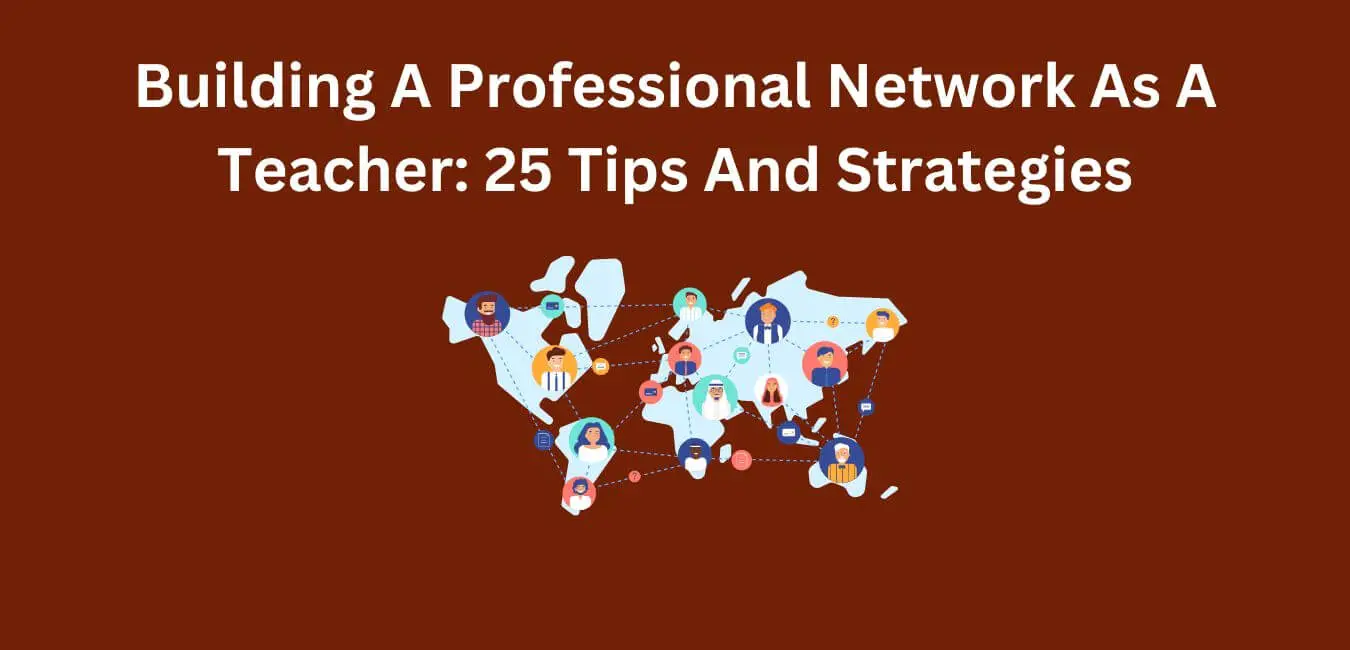A preschool teacher is someone who teaches children aged 3–5 years old. In most jurisdictions, this person must have at least a high school diploma and a Child Development Associate (CDA) credential. Some states also require preschool teachers to be licensed. The job of a preschool teacher is to prepare young children for kindergarten. They do this by teaching them basic academic and social skills.
Preschool teachers play a vital role in supporting and promoting early learning. They provide a safe and nurturing environment, introduce children to early literacy and numeracy concepts, and help them develop social skills.
Moreover, a good preschool teacher can make a big difference in a child’s life. A preschool teacher can help a child learn important social and academic skills. A preschool teacher can also help a child feel comfortable and confident in school. A good preschool teacher is an important part of a child’s education.
However, being a preschool teacher has its own pros and cons. So, what are the benefits of being a preschool teacher? And what are the drawbacks to being a preschool teacher? Stay tuned to find out.
Is Becoming a Preschool Teacher Right for You?
If you’re considering a career in early childhood education, you may be wondering if becoming a preschool teacher is the right path for you. Here’s what you need to know about working in preschool programs to help you make the best decision for your future.
Preschool teachers work with children ages 3-5 in a variety of settings, including public and private schools, child care centers, and Head Start programs. They are responsible for planning and implementing lesson plans that promote cognitive, social, and emotional development in young children.
Becoming a preschool teacher requires at least a bachelor’s degree in early childhood education or a related field. Many states also require teachers to be licensed or certified. Although the hours can be long and the work can be challenging at times, most preschool teachers say they feel rewarded by watching their students grow and develop over time.
Furthermore, if you love working with children and have a passion for teaching, becoming a preschool teacher may be the perfect career for you. Teaching in a preschool setting requires patience, creativity, and the ability to develop positive relationships with both children and their families.
Therefore, to decide if becoming a preschool teacher is good for you or not, it is best to consider the benefits and drawbacks of being a preschool teacher as discussed below.
9 Pros of Being a Preschool Teacher
In many cases, a child’s first teacher is a preschool teacher. This is a very important role, as the decisions and actions of the preschool teacher can have a lasting impact on a child’s education and development.
A good preschool teacher will help a child develop a love for learning while also teaching them the basic academic and social skills they will need in kindergarten and beyond. A great preschool teacher can make all the difference in a child’s life. There are many benefits to being a preschool teacher. Some of the advantages include:
1. Getting to work with young children and helping them learn and grow.
One of the main advantages is that you get to work with young children and help them learn and grow. This is a great opportunity to make a difference in the lives of young children.
Another advantage of being a preschool teacher is that you can work with a variety of different children. This gives you the opportunity to learn about different cultures and backgrounds.
2. Having a flexible schedule that allows for more personal time and family time.
Preschool teachers often have the advantage of having a flexible schedule. This can allow for more personal time and family time. Having a flexible schedule is an important advantage for preschool teachers because it allows them to be more available to their families. It also allows them to have more time to pursue their own interests outside of work.
3. Enjoying a creative and fun environment.
Preschool teachers have the advantage of being able to create and maintain a creative and fun environment for their students. This environment is beneficial for several reasons.
First, it helps the students feel comfortable and engaged in the classroom. Second, it allows teachers to be more flexible and innovative in their teaching methods. Third, it provides an opportunity for the students to explore their creativity. Finally, it helps teachers build strong relationships with their students.
4. Working in a smaller setting with fewer students than in a traditional school setting.
Working in a smaller setting with fewer students than in a traditional school setting is an advantage to being a preschool teacher. The advantage of working in a smaller setting with fewer students than in a traditional school setting is that the preschool teacher can give each student more individual attention.
The teacher can also get to know the students and their families better, which can help make the transition to kindergarten smoother. In addition, the smaller class size means there is less paperwork and preparation time required.
5. Receiving training and professional development opportunities.
In the United States, early childhood education is a rapidly growing field with many opportunities for those who wish to work with children. One advantage of being a preschool teacher is receiving training and professional development opportunities.
Teacher training programs provide the opportunity to learn how to develop lesson plans, create a positive learning environment, and assess student progress. In addition, most programs offer classroom observation hours that allow preservice teachers to gain experience working with young children.
6. Having access to resources and materials to help you plan engaging lessons.
One advantage to being a preschool teacher is having access to resources and materials that help you plan engaging lessons.
Having a variety of resources at your disposal can help you create lesson plans that are both educational and fun for your students.
Furthermore, having access to resources can also help you troubleshoot any problems that may arise during your lesson planning process.
7. Being able to collaborate with other teachers and staff members
Working collaboratively with other teachers and staff members is an advantage of being a preschool teacher. When teachers are able to work together, they are able to share ideas and resources that benefit the students.
Moreover, working collaboratively can help build positive relationships between teachers and staff members. These relationships are important in order to create a positive learning environment for students.
8. Getting to know the families of your students and building relationships with them.
Building relationships with the families of your students is an advantage of being a preschool teacher. It allows you to get to know the students better and better understand their needs.
Furthermore, it strengthens the classroom community and creates a support system for both teachers and students. Families also appreciate knowing that their child’s teacher is interested in them as individuals. Finally, developing positive relationships with families can lead to lasting professional connections.
9. Making a difference in the lives of your students
When it comes to making a difference in the lives of students, preschool teachers have a distinct advantage. They are able to help their students develop academically, socially, and emotionally.
Preschool teachers help their students learn how to interact with others, follow rules, and solve problems.
They also provide them with the opportunity to learn about their world and themselves. In short, being a preschool teacher is an extremely rewarding experience.
10 Cons of Being a Preschool Teacher
Working with young children can be extremely rewarding, but it also comes with its share of challenges. Here are a few disadvantages to being a preschool teacher:
1. The pay is often low.
One of the disadvantages of being a preschool teacher is that the pay is often low. According to the National Institute For Early Education Research, the median salary for preschool teachers was just $28,790 in 2016.
That’s nearly $10,000 less than the median salary for all workers. And it’s even lower than the median salary for elementary school teachers, which was $57,160 in 2016. There are a number of reasons why preschool teachers are paid less than other teachers.
2. The hours can be long and irregular.
While childcare workers are in high demand, one of the disadvantages of being a preschool teacher is that the working hours can be long and irregular. Preschool teachers often have to work early mornings, evenings, and weekends in order to accommodate the schedules of their students and families.
This can make it difficult to maintain a healthy work-life balance. In addition, preschool teachers may have to work with multiple groups of children at different developmental levels throughout the day, which can be physically and emotionally draining.
3. Working with young children can be challenging and exhausting.
The job of a preschool teacher is not easy. It can be challenging and exhausting, and sometimes it is hard to keep up with the kids. But, despite the challenges, there are also many rewards to being a preschool teacher.
The best part of the job is seeing the children grow and learn. It is also satisfying to know that you are helping to prepare them for their future.
4. There is often a lot of paperwork and administrative work.
One of the disadvantages to being a preschool teacher is the amount of paperwork and administrative work required. Teachers are often required to keep track of students’ progress, create lesson plans, and communicate with parents.
This can be a lot of work, and it can be difficult to keep up with everything. In addition, preschool teachers often have to work long hours and may not have much time for themselves.
5. There can be behavior problems with children.
One of the disadvantages of being a preschool teacher is having to deal with behavioral problems in children. Although it can be rewarding to help a child learn and grow, it can also be difficult to manage a classroom full of young children with different personalities and energy levels.
If a child is acting out, it can disrupt the whole class and make it difficult for the other students to learn. Additionally, dealing with parents who are concerned about their child’s behavior can be challenging.
6. There may be a lack of resources and support from the school or district.
There are many disadvantages of being a preschool teacher, one of which is the lack of resources and support from the school or district. This can be a major problem for teachers, as they may not have the supplies they need or the support of their superiors. This can lead to a feeling of isolation and frustration among teachers.
7. There can be parental issues to deal with.
One of the disadvantages of being a preschool teacher is having to deal with parental issues. Parents can be extremely demanding and often have unrealistic expectations of their child’s progress.
This can be frustrating for teachers, who are trying to do their best to help each child reach his or her potential.
In addition, parents may be resistant to suggestions from teachers and may even be critical of the way the classroom is run.
8. Burnout is common among preschool teachers.
Burnout is common among preschool teachers. It is one of the disadvantages of being a preschool teacher. Burnout can lead to job dissatisfaction, absenteeism, and turnover. It can also lead to physical and mental health problems.
9. It can be difficult to find a job in the field.
Although being a preschool teacher can be rewarding, there are some disadvantages to the profession. One of the biggest disadvantages is that it can be difficult to find a job.
The demand for preschool teachers varies from year to year and region to region, making it hard to predict where jobs will be available. Moreover, many preschool teaching positions are part-time or full-time only during the school year, which can make it difficult to earn a steady income.
10. You need to be able to think on your feet and be creative in your teaching methods.
One of the disadvantages of being a preschool teacher is that you need to be able to think on your feet and be creative in your teaching methods. This can be challenging if you are not used to thinking creatively or working with young children. Additionally, you may find yourself working long hours or weekends to prepare for classes and meet the needs of your students.
Conclusion
Being a preschool teacher has its benefits and drawbacks. On the plus side, you get to work with young children and help them learn and grow. On the downside, you may have to deal with challenging behavior from children, parents, and co-workers. If you’re thinking of becoming a preschool teacher, be sure to weigh the pros and cons carefully before making your decision. Thank you for your time!

















